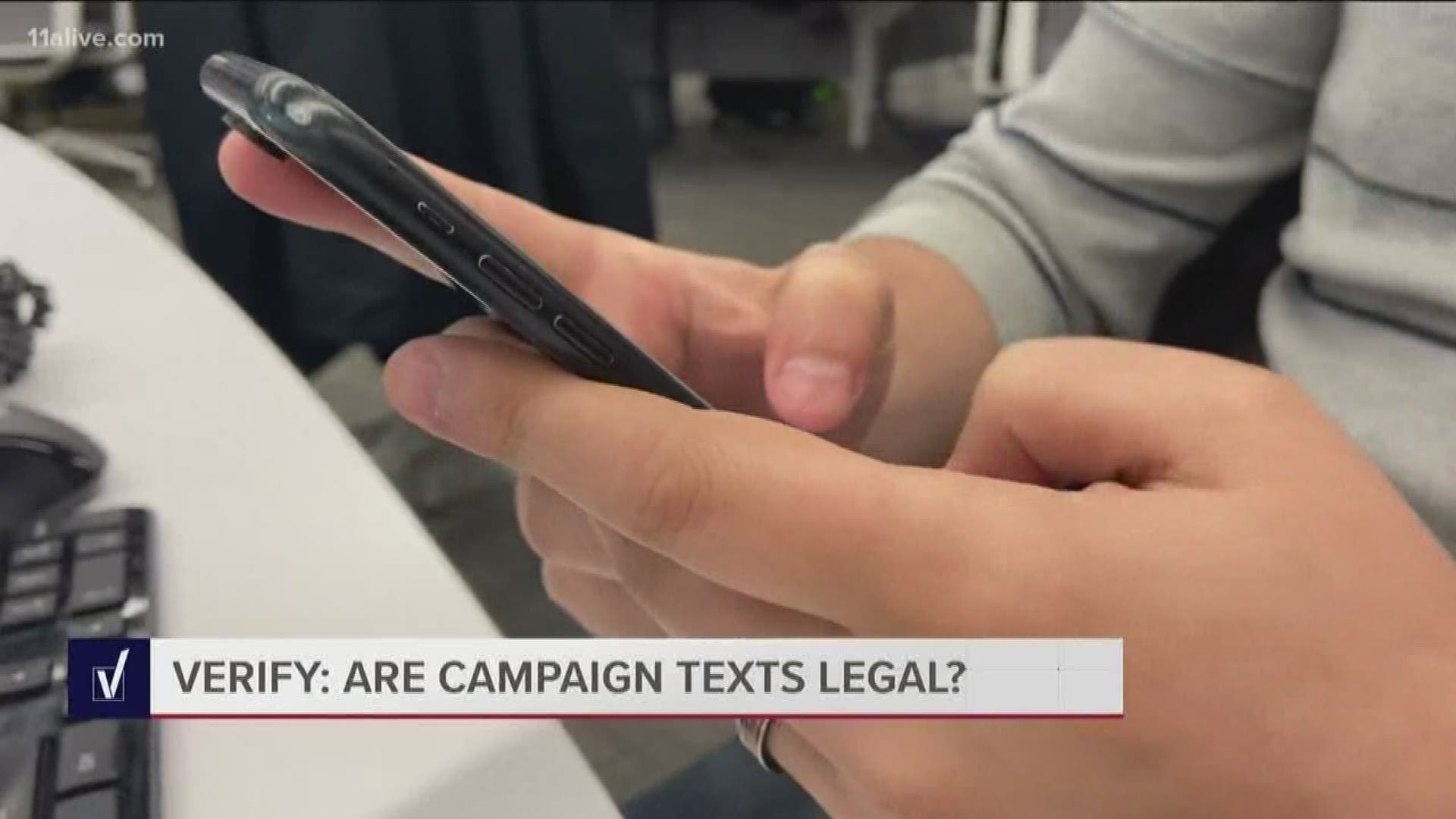ATLANTA — We're less than a month away from the 2020 Georgia presidential primary, and the push to reach voters before they head to the polls is causing our phones to vibrate and ring.
The influx of political text messages is prompting questions about whether campaign texts are actually allowed.
11Alive set out to verify, starting with the Federal Communications Commission.
The answer falls under the Telephone Consumer Protection Act, which prohibits unsolicited robo-texting:
"Robotexts - text messages generated through autodialing - are considered a type of call and fall under all robocall rules. As text messages go to mobile phones, they require the called party's prior express consent if they are generated using autodialing. However, political text messages can be sent without prior consent of the intended recipient if the sender does not use autodialing technology to send the text."
In other words, if it's a real human who sends you a text, that is allowed.
Campaigns can also take advantage of peer-to-peer messaging software to streamline batches of texts while still requiring a human to click "send."
11Alive reached out to the FCC to inquire about the rules of campaigns employing P2P texting and found that any regulations regarding such software use is still pending. A spokesperson declined comment on the question until the FCC issues a ruling.
Yet, how are campaigns getting your personal numbers in the first place?
"The easiest way for campaigns to get a hold of phone numbers," Dr. Andra Gillespie said, "is when you sign up to get election updates or when you sign up to attend a rally or march. Oftentimes, they're asking for your phone number and they're collecting that data. There are also ways to get access to consumer data as well."
While GA state law makes voter registration lists available to the public for purchase, 11Alive confirmed with the Georgia Secretary of State's office that phone numbers are not part of that data.
In summary, 11Alive verified it is legal for political campaigns to text you without consent if a human is behind the message. According to Dr. Gillespie, texting can be an effective campaign tactic.
"It's actually a useful mobilization tool," she said. "The ideal is for campaigns to knock on every door and talk to every voter personally and ask voters to vote. Text messaging, though not as effective as canvassing, can actually increase voter turnout which is why campaigns turn to it."
For those interested in blocking such texts, the FCC recommends consumers look into third party blocking services or talk to their carrier.
MORE VERIFY

